aBeLOG
Welcome to the aBeLOG, a series of (hopefully!) fortnightly posts on all matters homiletical. I intend to touch on whatever grabs my attention regarding preaching—issues contemporary and ancient, ideas hermeneutical and rhetorical, personalities conservative and liberal, publications antiquarian and avant-garde. Essentially, I’m going to follow my own homiletical olfactory instincts up rabbit trails and after red herrings. Comments are always invited and appreciated.
Mark 3:7–35
Disciples—insiders with Jesus—are those who do the will of God.
For whoever does the will of God, he is My brother and sister and mother.
Mark 3:35
This pericope opens with a summary (Mark 3:7–12): crowds are still following him, looking for what Jesus has to offer in terms of healing of disease and alleviation of affliction—they’re following him for the wrong reasons. The reader is beginning to wonder: If everyone is after Jesus for ulterior motives, is there
Mark 2:1–3:6
Following Jesus in discipleship involves facing opposition boldly and persistently, without being deterred from God’s calling.
And looking around at them with anger,
grieved at their hardness of heart,
He said to the man, “Stretch out your hand.”
And he stretched [it] out and his hand was restored.
Mark 3:5
The plot moves on from Jesus’ increasing popularity (for misguided reasons) in Mark 1:21–45 to escalating opposition in 2:1–3:6 (also for wrong reasons).
That
Mark 1:21–45
Following Jesus is not a self-serving enterprise, but one of selfless service.
And He came and raised her up,
holding her hand; and the fever left her,
and she served them.
Mark 1:31
Jesus has just called disciples to follow. How should they? This pericope provides the first answer.
Mark 1:21–45 is a fast-paced description of the spreading of Jesus’ fame. It is set in and around Capernaum, in the space of two twenty-four hour periods (1:32, 35), and contains all the
Mark 1:1–20
The life-journey of discipleship, the beginning of the establishment of God’s kingdom, involves suffering.
And passing by the Sea of Galilee, He saw Simon and Andrew,
the brother of Simon, casting a net in the sea; for they were fishermen.
And He said to them, “Come after me, and I will make you become fishers of people.”
And immediately they left the nets and followed Him.
Mark 1:16–18
Quite an interesting beginning for a Gospel: Mark jumps right into the middle
Mark: Introduction
After the series of posts for the last few months on the theology of preaching and what authors do with what they say, I am planning to go through the Gospel of Mark, pericope by pericope, here on the aBeLOG. This will essentially be a distillation of what is in my commentary (Mark: A Theological Commentary for Preachers; more on the book here).
Texts and Stained Glass
Biblical authors’ literary products are agenda-driven and discoursed for a purpose, not merely created to convey information. They carefully selected and shaped their material to convey their respective theological agendas (pericopal theology). Think of what authors can do to just one facet of life, time; it is the authors’ prerogative to tweak it any which way they wish: flash forwards, flash backs, summaries, ellipses (gaps in the story), pauses (for explanatory
Naked & Enrobed
That’s right: Naked & Enrobed!
Yup, that was one of my recent sermons.
Actually, the full title was The Naked Runaway and the Enrobed Reporter!
On one of the most obscure texts of the New Testament.
A young man was following Him,
wearing a linen clothe over [his] nakedness;
and they seized him.
But he abandoned the linen cloth
and fled naked.
Mark 14:51
Well, if you want to know more about this unfortunate gentleman’s wardrobe malfunction, go

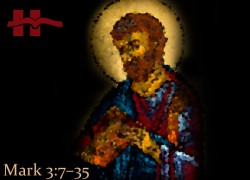
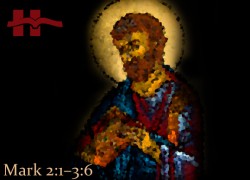
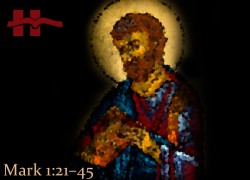
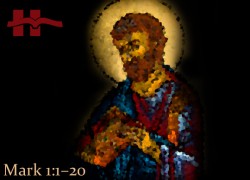
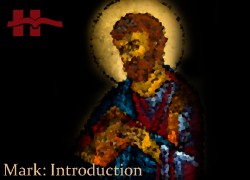
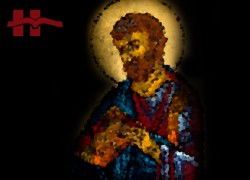
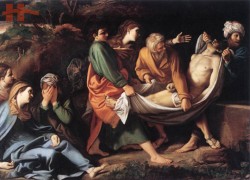











 Abe Kuruvilla is the Carl E. Bates Professor of Christian Preaching at The Southern Baptist Theological Seminary (Louisville, KY), and a dermatologist in private practice. His passion is to explore, explain, and exemplify preaching.
Abe Kuruvilla is the Carl E. Bates Professor of Christian Preaching at The Southern Baptist Theological Seminary (Louisville, KY), and a dermatologist in private practice. His passion is to explore, explain, and exemplify preaching.